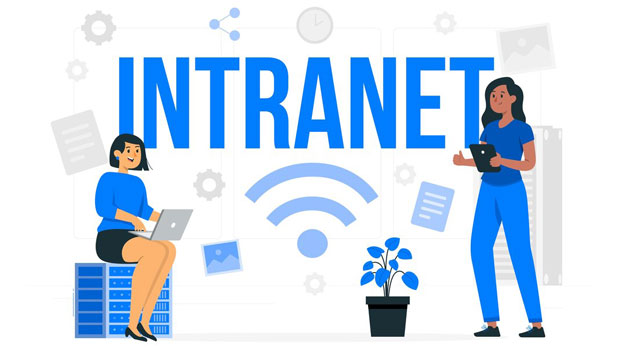In today’s digital landscape, platforms like TikTok and Instagram are vital for businesses, marketers, and content creators. However, accessing these platforms at scale or automating interactions can be challenging due to their stringent anti-bot measures. Rotating residential proxies have emerged as a solution to bypass these limitations, offering users the ability to access these platforms with ease and anonymity. This article explores how rotating residential proxies work and their effectiveness when used on TikTok and Instagram, emphasizing their benefits and potential risks. What Are Rotating Residential Proxies?Rotating residential proxies are a type of proxy server that allows users to connect to the internet through a real residential IP address. Unlike standard data center proxies, which can be easily flagged by platforms, residential proxies are harder to detect because they mimic genuine users' behavior. These proxies regularly rotate the IP address, which means that each time a user makes a request, it appears as though it originates from a different device or location.The rotation process can be set to occur at intervals ranging from seconds to minutes, depending on the user’s needs. This rotation enhances privacy and security, providing an additional layer of anonymity. In the context of social media platforms, rotating residential proxies can help businesses scale their operations without facing the common limitations imposed by TikTok and Instagram’s anti-bot systems.The Challenges of Accessing TikTok and InstagramTikTok and Instagram have been at the forefront of social media innovation, attracting millions of active users globally. As a result, these platforms have become prime targets for automated bots, which are often used for scraping data, mass following/unfollowing, liking, commenting, and automating direct messages. To protect users and maintain the quality of interactions, TikTok and Instagram have implemented several anti-bot mechanisms.These systems include IP blocking, CAPTCHA challenges, rate-limiting, and user verification, making it difficult for bots to perform large-scale operations without getting flagged. This is where rotating residential proxies come in. By frequently changing the IP address, they mimic human-like behavior, reducing the risk of detection and blocking.Benefits of Using Rotating Residential Proxies on TikTok and Instagram1. Avoiding IP Bans One of the primary advantages of rotating residential proxies is the ability to avoid IP bans. When using static proxies or even data center proxies, platforms like TikTok and Instagram can detect repeated actions from the same IP and flag it as suspicious. This often results in account limitations, IP bans, or even account suspension. However, with rotating residential proxies, the frequent change in IP addresses reduces the chances of this happening.2. Improved Scraping Capabilities For marketers and data analysts, the ability to scrape large volumes of data from TikTok and Instagram is crucial. Residential proxies help in this regard by allowing users to access public profiles, hashtags, and posts without triggering anti-bot measures. The rotation ensures that each scraping request is perceived as originating from a different device, making it harder for platforms to block or restrict the activity.3. Enhanced Anonymity and Privacy By using rotating residential proxies, users can maintain a higher level of privacy while accessing TikTok and Instagram. This is especially important for businesses that want to conduct market research or track competitors without revealing their identity. Residential proxies, being associated with real user devices, make it difficult for these platforms to trace activities back to a single user.4. Faster and More Reliable Access rotating proxies ensure that users can bypass regional restrictions and access content that may be blocked in certain locations. For instance, a user in one country can use a rotating residential proxy to simulate browsing from another country and access geo-restricted content on TikTok or Instagram. This can be especially beneficial for businesses that want to target a global audience.Challenges and Potential Risks of Rotating Residential Proxies1. Cost Considerations Rotating residential proxies tend to be more expensive than other types of proxies due to the complexity of the technology and the need to maintain a large pool of real IP addresses. For businesses on a tight budget, the cost of using residential proxies may outweigh the benefits, especially for smaller-scale operations.2. Risk of Proxy Abuse Although rotating residential proxies are more difficult to detect, platforms like TikTok and Instagram are constantly updating their algorithms and anti-bot measures. This means that proxy services must continually adapt to stay ahead of these updates. There is always a risk that a certain proxy provider may be identified and blocked, leading to temporary or permanent loss of access.3. Quality of Proxy Provider Not all rotating residential proxies are created equal. Some proxy providers may offer low-quality IP addresses that are already flagged or associated with suspicious activity. This can result in slower speeds, higher risk of detection, or even a poor user experience. It’s crucial for users to choose a reputable proxy provider to ensure the reliability and effectiveness of their proxy solution.4. Legal and Ethical Concerns The use of proxies, particularly for scraping or automating interactions on social media platforms, can raise ethical and legal issues. Some users may unknowingly violate TikTok’s or Instagram’s terms of service, which can result in penalties or account suspensions. Therefore, it’s important for users to ensure that their actions align with the platform's guidelines and legal frameworks.How to Maximize the Effectiveness of Rotating Residential Proxies on TikTok and InstagramTo get the most out of rotating residential proxies on platforms like TikTok and Instagram, users should follow a few best practices:1. Use Slow and Human-like Interactions When using proxies for tasks like automation, it’s important to ensure that actions appear natural. This means using realistic interaction speeds, avoiding massive spikes in activity, and simulating human-like behavior. For example, instead of following or liking thousands of posts in an hour, a more gradual approach is recommended.2. Monitor Proxy Health Regularly Since rotating residential proxies rely on a large pool of IP addresses, it’s important to monitor the health of the proxies regularly. Make sure the proxies are not flagged, and ensure they provide stable and fast connections to avoid any disruptions in your workflow.3. Adhere to Platform Guidelines Always respect the terms of service of TikTok and Instagram. This includes not using proxies for illegal activities, spamming, or other forms of manipulation that violate the platform’s rules. Staying within the platform’s guidelines ensures long-term success without facing penalties.Rotating residential proxies offer a powerful solution for overcoming the limitations imposed by platforms like TikTok and Instagram. They allow businesses, marketers, and content creators to access these platforms at scale while avoiding detection and IP bans. However, users must be aware of the potential risks and costs involved, as well as the importance of ethical use. When implemented correctly, rotating residential proxies can provide significant advantages, including enhanced privacy, data scraping capabilities, and access to geo-restricted content.
Aug 15, 2025



































































